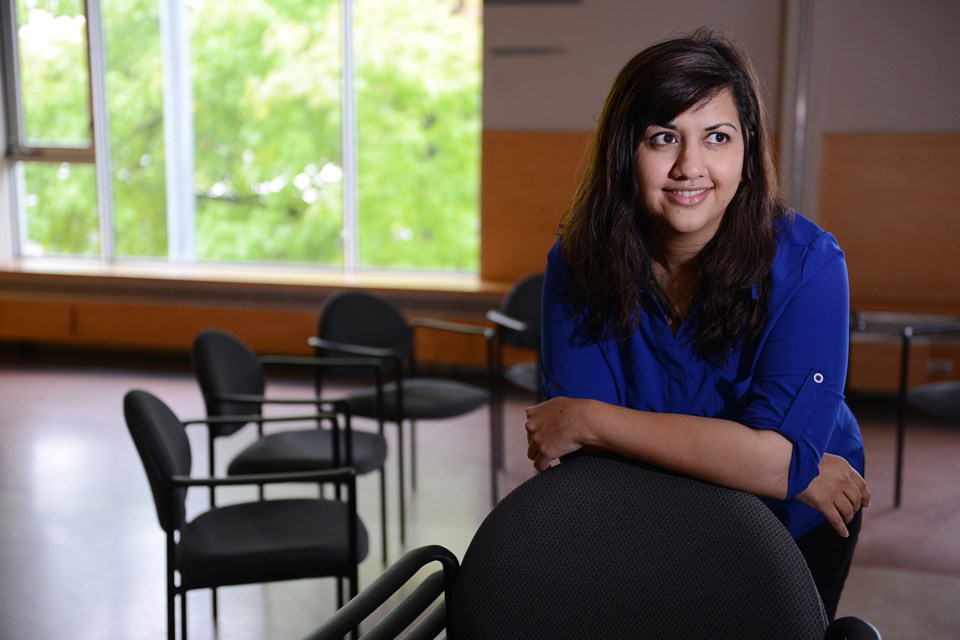Ramanjit Bains helps people improve their communication as a speech-language pathologist. But as a volunteer facilitator for a new Living with Stroke program, she hopes to help people who’ve suffered strokes work toward their own goals.
“Especially if they’ve come through the hospital system, the doctors will say you need to do this, and then the speech therapist will say you need to do this, and then the [occupational therapist] and physiotherapy and so on, so it can get pretty overwhelming,” Bains said. “So this is an opportunity for people to really figure out OK, this is what I think I need, this is what I really feel like I need to further my recovery and can we all work together in helping me move forward with these goals.”
The Heart and Stroke Foundation’s Living with Stroke program started on the West Side of Vancouver last month with a new East Side session beginning, Oct. 2. The free program includes eight weekly, two-hour sessions. Bains said she won’t “regurgitate information” as a facilitator. Instead, she’ll encourage conversation. Topics to be discussed include impact of stroke, physical changes, keeping active, dealing with emotions and relationships, reducing future risk and nutrition. The program is open to 12 participants, including people who’ve had strokes and their family members.
Six spaces were vacant Friday morning.
Deborah Rusch, manager of survivor support for the Heart and Stroke Foundation, said groups are limited to 12 participants to keep discussions intimate and private. The foundation plans to offer the program in Vancouver at least twice a year.
“Stroke can be a very isolating disease where people end up in their homes because they’re afraid to go outside or they’re afraid to get out back into the community just because they might have challenges with paralysis on one of their sides,” Rusch said.
“A large part of it is connecting people with each other,” Bains agreed. “People having the chance to share their experiences is really important.”
She noted American studies say up to one-third of people who suffer a stroke subsequently deal with depression.
Bains works with people who’ve had strokes at Holy Family Hospital near Knight Street and Southeast Marine Drive.
“We see people really early on in their stroke journey, right after they’ve had their stroke they’re sent to us for rehabilitation, and then they go home and then we never really hear from them again,” she said. “But I know that people need ongoing support and that’s really lacking in Vancouver, especially. The services are really front-loaded towards the hospital stays, but when people are living at home, that’s when they find they’re really needing that extra support.”
Rusch said other facilitators include family members of people who’ve suffered strokes who are keen to give back.
A stroke is a sudden loss of brain function caused by the interruption of flow of blood to the brain (ischemic stroke) or the rupture of blood vessels in the brain (hemorrhagic stroke). The interruption of blood flow or the rupture causes neurons in the affected area to die. The effects of a stroke depends on the where the brain was injured and how much damage occurred. A stroke can affect one’s ability to move, see, remember, speak, reason and read and write.
The Heart and Stroke Foundation has offered the Living with Stroke program in five other provinces, including Ontario, for at least 10 years.
Living with Stroke will run 6:30 to 8:30 p.m. at the Killarney Community Centre, 6260 Killarney St. To register, phone 1-888-473-4636 or email [email protected]. For more information, visit heartandstroke.bc.ca.
twitter.com/Cheryl_Rossi



